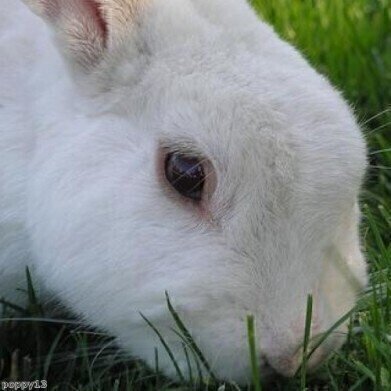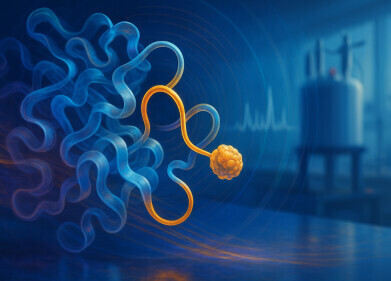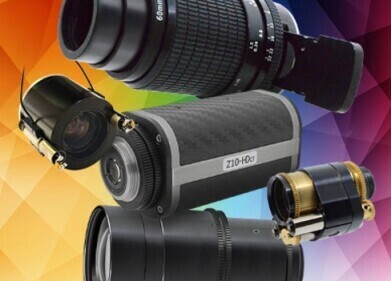-
 Only two out of eight rabbits accepted the glow in the dark gene
Only two out of eight rabbits accepted the glow in the dark gene
Microscopy & microtechniques
Scientists clone glow in the dark rabbits
Aug 12 2013
Scientists in Hawaii and Turkey have successfully managed to clone a litter of rabbits as part of their research into the treatment of life-threatening illnesses. As well as being clones, two of the rabbits have also been genetically engineered so they glow bright green in the dark. It is hoped that the breakthrough will further help in the study of genetic diseases.
The glow in the dark rabbits signify that certain genetic material that was injected into the embryos has been successfully incorporated into the rabbits' genetic code. By glowing in the dark, the two rabbits show that scientists were able to alter their genes. This could signify that scientists might eventually be able to do this for humans and so alter the outcome of genetic diseases.
The green glow that emits from two of the rabbits was introduced by injecting a fluorescent protein into the embryos. This protein comes from jellyfish DNA and is not harmful to the rabbits, which are expected to live out the same lifespan as their non-glowing family. Once all eight of the embryos had been injected, they were reinserted into the mother rabbit in order to be born naturally. Only two of the embryos accepted the jellyfish DNA as their own.
Other animals have been born that glow in the dark, including mice, monkeys, kittens and puppies. The scientists are now aiming to introducing different genetic material into larger animals. This could ultimately lead to the production of medicines that are beneficial to those with genetic diseases, as well as at a lower cost.
Doctor Stefan Moisyadi, biogenesis researcher, said: "[For] patients who suffer from haemophilia and they need the blood clotting enzymes in their blood, we can make those enzymes a lot cheaper in animals with barrier reactives rather than a factory that will cost billions of dollars to build."
It is hoped that the scientists will be able to take their work to the US for further study - the rabbits were born in Istanbul Turkey. However, the researchers are predicting that this will prove quite difficult.
Digital Edition
Lab Asia Dec 2025
December 2025
Chromatography Articles- Cutting-edge sample preparation tools help laboratories to stay ahead of the curveMass Spectrometry & Spectroscopy Articles- Unlocking the complexity of metabolomics: Pushi...
View all digital editions
Events
Jan 21 2026 Tokyo, Japan
Jan 28 2026 Tokyo, Japan
Jan 29 2026 New Delhi, India
Feb 07 2026 Boston, MA, USA
Asia Pharma Expo/Asia Lab Expo
Feb 12 2026 Dhaka, Bangladesh
.jpg)
-(2).jpg)
















